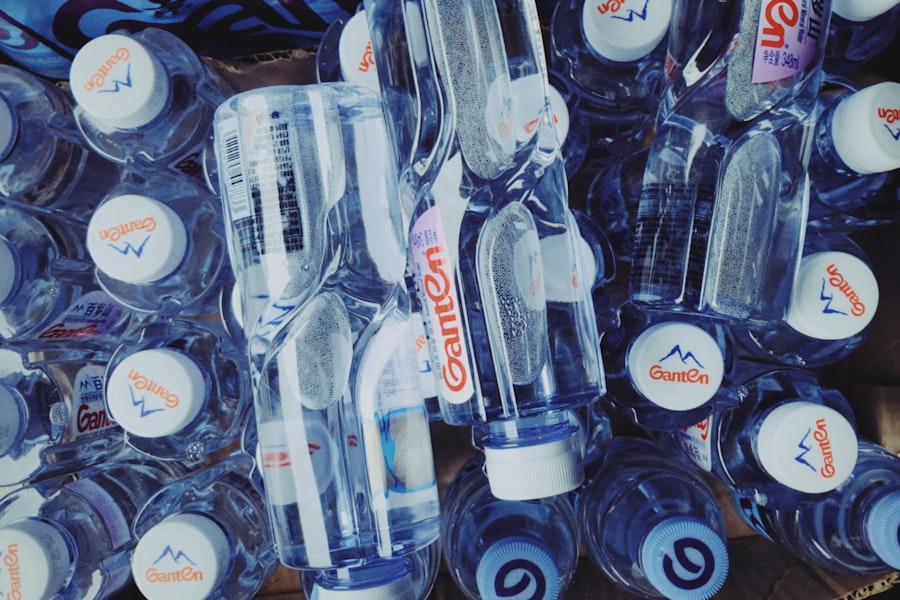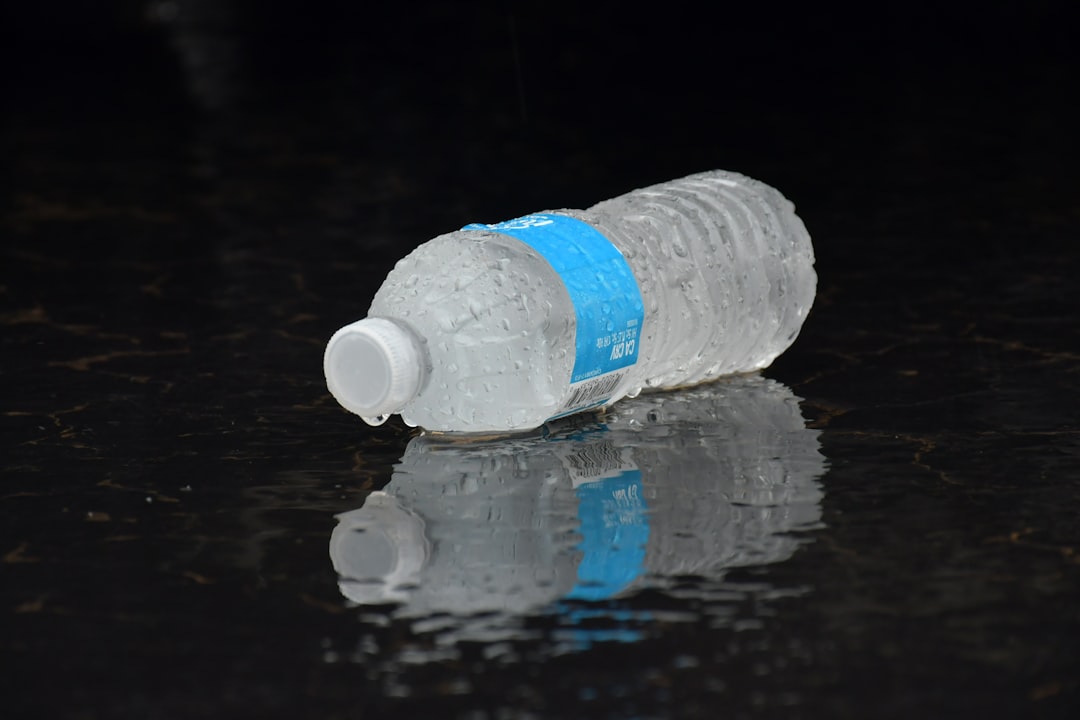The bottled water industry has burgeoned into a multi-billion-dollar enterprise, captivating consumers with the promise of purity and convenience. However, this convenience often comes at a significant cost to local ecosystems, particularly the aquifers that serve as vital sources of freshwater. As communities increasingly rely on bottled water, the extraction processes employed by companies can lead to alarming consequences for these underground reservoirs.
The implications of bottled water extraction extend beyond mere depletion; they encompass environmental degradation, economic challenges for local populations, and a growing awareness of the need for sustainable water management practices. The extraction of groundwater for bottled water production raises critical questions about resource allocation and environmental stewardship. As companies tap into local aquifers, they often prioritize profit over the long-term health of these essential water sources.
This article delves into the intricate relationship between bottled water extraction and local aquifers, exploring the ramifications for both communities and ecosystems. By examining the role of aquifers in water supply, the impact of extraction on aquifer levels, and the broader consequences of depletion, a clearer picture emerges of the urgent need for responsible water management.
Key Takeaways
- Bottled water extraction significantly lowers local aquifer levels, threatening water supply sustainability.
- Depletion of aquifers harms local communities by reducing access to clean, reliable water sources.
- Environmental consequences include ecosystem damage and reduced groundwater recharge.
- Alternatives like tap water and community water programs can reduce reliance on bottled water.
- Stronger government regulations and corporate responsibility are essential to protect aquifers.
The Role of Local Aquifers in Water Supply
Local aquifers play a crucial role in providing freshwater to communities, agriculture, and ecosystems. These underground reservoirs are formed through the natural filtration of rainwater and surface water, which seeps into the ground and replenishes the aquifer. They serve as a reliable source of drinking water for millions of people, particularly in regions where surface water is scarce or contaminated.
The importance of aquifers cannot be overstated; they are essential not only for human consumption but also for irrigation, industrial processes, and maintaining the health of local ecosystems. In many areas, aquifers are the backbone of local water supply systems.
The sustainability of these aquifers is paramount, as over-extraction can lead to significant declines in water levels, affecting not only human access to water but also the flora and fauna that depend on these ecosystems. Understanding the vital role that local aquifers play in water supply is essential for recognizing the potential consequences of bottled water extraction.
The Bottled Water Industry’s Extraction of Groundwater

The bottled water industry has become synonymous with convenience and perceived purity, but this comes at a cost to local aquifers. Companies often extract groundwater from these vital sources to meet consumer demand for bottled products. This extraction process typically involves drilling wells into aquifers and pumping out large volumes of water, which can lead to significant declines in groundwater levels.
The sheer scale of extraction by major bottled water brands raises concerns about sustainability and the long-term viability of these essential resources. Moreover, the methods employed by bottled water companies can vary widely, with some utilizing more sustainable practices than others. However, many companies prioritize rapid extraction to maximize profits, often neglecting the ecological balance that must be maintained.
This approach can lead to over-extraction, where the rate of groundwater removal exceeds the natural recharge rate of the aquifer. As a result, local communities may find themselves facing dwindling water supplies while corporations continue to profit from their natural resources.
Impact of Bottled Water Extraction on Aquifer Levels
| Region | Annual Bottled Water Extraction (Million Liters) | Average Aquifer Level Decline (Meters per Year) | Percentage Change in Aquifer Recharge Rate | Impact on Local Water Supply |
|---|---|---|---|---|
| California, USA | 150 | 0.8 | -12% | Moderate stress on groundwater availability |
| Valle de Bravo, Mexico | 90 | 1.2 | -18% | Significant reduction in well water levels |
| South Australia | 70 | 0.5 | -10% | Localized aquifer depletion |
| Alps Region, Europe | 120 | 0.7 | -15% | Noticeable impact on spring water sources |
| Fiji Islands | 50 | 0.9 | -20% | Severe impact on freshwater availability |
The impact of bottled water extraction on aquifer levels is profound and multifaceted. When companies extract groundwater at unsustainable rates, it can lead to a significant drop in water levels within the aquifer. This depletion can have immediate effects on local communities that rely on these sources for drinking water and irrigation.
As aquifer levels decline, wells may run dry, forcing residents to seek alternative sources or face increased costs associated with accessing clean water. In addition to immediate impacts on human populations, declining aquifer levels can disrupt local ecosystems. Many plants and animals depend on consistent groundwater levels to thrive; when these levels fluctuate dramatically due to over-extraction, it can lead to habitat loss and decreased biodiversity.
The interconnectedness of groundwater systems means that changes in one area can have ripple effects throughout an entire ecosystem, further complicating the challenges posed by bottled water extraction.
Consequences of Aquifer Depletion for Local Communities
The consequences of aquifer depletion extend far beyond mere inconvenience; they can fundamentally alter the fabric of local communities. As groundwater levels drop due to excessive extraction by bottled water companies, residents may face increased competition for dwindling resources. This competition can lead to conflicts over water rights and access, particularly in areas where multiple stakeholders rely on the same aquifer.
In some cases, communities may be forced to invest in costly infrastructure to access alternative sources of water or face dire shortages. Moreover, the economic implications of aquifer depletion can be severe. Agriculture, which often relies heavily on groundwater for irrigation, may suffer as farmers struggle to maintain crop yields with diminishing water supplies.
This can lead to increased food prices and economic instability within communities that depend on agriculture as a primary source of income. The social fabric of these communities can fray as residents grapple with the realities of water scarcity and its associated challenges.
Environmental Impact of Aquifer Depletion

The environmental impact of aquifer depletion is a pressing concern that extends beyond human populations. As groundwater levels decline due to excessive extraction by bottled water companies, ecosystems that rely on consistent moisture face significant threats. Wetlands, rivers, and lakes that are fed by groundwater may experience reduced flow or even dry up entirely, leading to habitat loss for countless species.
The delicate balance of these ecosystems is disrupted, resulting in cascading effects that can diminish biodiversity and alter local landscapes. Additionally, aquifer depletion can exacerbate other environmental issues such as land subsidence and saltwater intrusion.
This phenomenon poses a significant threat to agricultural productivity and freshwater availability in affected regions. The environmental consequences of aquifer depletion underscore the urgent need for sustainable practices within the bottled water industry and greater awareness among consumers about their choices.
Alternatives to Bottled Water for Local Water Sources
As awareness grows regarding the impact of bottled water extraction on local aquifers, many communities are exploring alternatives to reduce their reliance on bottled products. One viable option is investing in robust municipal water systems that prioritize sustainable sourcing and distribution practices. By improving infrastructure and ensuring access to clean tap water, communities can significantly decrease their dependence on bottled water while promoting public health.
Another alternative involves encouraging the use of refillable containers and establishing community-based refill stations. These initiatives not only reduce plastic waste but also promote a culture of conservation and responsible consumption. By fostering a sense of community around sustainable practices, residents can collectively work towards protecting their local aquifers while enjoying access to safe drinking water.
Government Regulation of Bottled Water Extraction
Government regulation plays a crucial role in managing bottled water extraction and protecting local aquifers from over-exploitation. In many regions, regulatory frameworks exist to govern groundwater use; however, enforcement can be inconsistent or inadequate. Striking a balance between economic interests and environmental protection is essential for ensuring that aquifers remain viable sources of freshwater for future generations.
Effective regulation should include measures such as monitoring extraction rates, implementing sustainable withdrawal limits, and requiring companies to invest in replenishment efforts. Additionally, public transparency regarding groundwater usage can empower communities to advocate for their rights and hold corporations accountable for their practices. By strengthening regulatory frameworks surrounding bottled water extraction, governments can help safeguard local aquifers while promoting responsible corporate behavior.
Corporate Responsibility in Bottled Water Industry
Corporate responsibility within the bottled water industry is an increasingly important topic as consumers become more aware of the environmental implications associated with their choices. Companies must recognize their role in protecting local aquifers and take proactive steps towards sustainable practices. This includes not only minimizing extraction rates but also investing in initiatives that support community access to clean water.
Transparency is key; consumers are more likely to support brands that demonstrate a commitment to environmental stewardship and social responsibility. By adopting sustainable sourcing practices and engaging with local communities, companies can build trust and foster positive relationships with those who are directly affected by their operations. Ultimately, corporate responsibility should extend beyond profit margins; it should encompass a genuine commitment to preserving natural resources for future generations.
Community Action to Protect Local Aquifers
Community action is vital in addressing the challenges posed by bottled water extraction and protecting local aquifers from depletion. Grassroots movements have emerged across various regions as residents band together to advocate for sustainable practices and hold corporations accountable for their actions. These movements often focus on raising awareness about the importance of local aquifers and mobilizing support for policy changes that prioritize environmental protection.
Engaging with local governments and stakeholders is essential for effecting meaningful change. Communities can organize campaigns aimed at promoting responsible consumption habits while advocating for stricter regulations on bottled water extraction. By fostering collaboration among residents, environmental organizations, and policymakers, communities can create a united front against unsustainable practices that threaten their vital water resources.
Addressing the Drain on Local Aquifers from Bottled Water
The impact of bottled water extraction on local aquifers is a complex issue that requires urgent attention from all stakeholders involved—consumers, corporations, governments, and communities alike. As awareness grows regarding the consequences of over-extraction, it becomes increasingly clear that sustainable practices must be prioritized to protect these vital resources. By exploring alternatives to bottled water, advocating for stronger regulations, and promoting corporate responsibility within the industry, society can work towards safeguarding local aquifers for future generations.
Ultimately, addressing the drain on local aquifers from bottled water requires a collective effort rooted in education, advocacy, and responsible consumption habits. As individuals make informed choices about their water sources and demand accountability from corporations and governments alike, there is hope for a more sustainable future where both people and ecosystems thrive together in harmony with nature’s resources.
The issue of bottled water draining local aquifers has garnered significant attention in recent years, highlighting the environmental impact of this industry. For a deeper understanding of the implications of bottled water extraction on local water sources, you can read a related article that discusses these concerns in detail. Check it out here: Bottled Water and Local Aquifers.
WATCH THIS! The $400 Billion Water Lie: Why Bottled Water Is a Scam
FAQs
What is the impact of bottled water production on local aquifers?
Bottled water production often involves extracting large volumes of groundwater from local aquifers. This can lead to a significant depletion of these water sources, potentially lowering water tables and affecting the availability of water for local communities and ecosystems.
How does bottled water extraction affect local communities?
When bottled water companies extract groundwater, it can reduce the amount of water available for residents, agriculture, and businesses. This may result in water shortages, increased costs for water, and negative impacts on local livelihoods.
Are all bottled water companies draining local aquifers?
Not all bottled water companies have the same impact. The extent of aquifer depletion depends on the volume of water extracted, the sustainability of the water source, and local water management practices. Some companies may implement measures to minimize environmental impact.
What are aquifers and why are they important?
Aquifers are underground layers of water-bearing rock or sediment that store groundwater. They are a crucial source of fresh water for drinking, agriculture, and industry, especially in areas without sufficient surface water.
Can bottled water extraction lead to environmental damage?
Yes, excessive extraction of groundwater for bottled water can lower water tables, reduce stream and wetland flows, and harm aquatic ecosystems. It can also cause land subsidence and reduce water quality.
Are there regulations governing bottled water extraction from aquifers?
Regulations vary by country and region. Many places require permits for groundwater extraction and set limits to protect water resources. However, enforcement and the strictness of these regulations can differ widely.
What alternatives exist to reduce the impact of bottled water on aquifers?
Alternatives include promoting tap water use, improving water infrastructure, encouraging reusable water bottles, and supporting companies that source water sustainably or use recycled materials for packaging.
How can consumers help mitigate the impact of bottled water on local aquifers?
Consumers can reduce bottled water consumption, choose brands committed to sustainable water sourcing, support local water conservation efforts, and advocate for stronger regulations on groundwater extraction.
